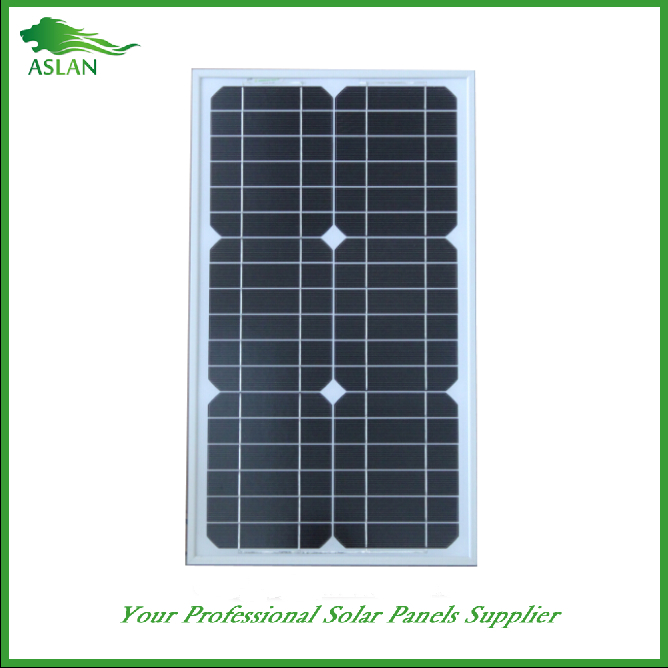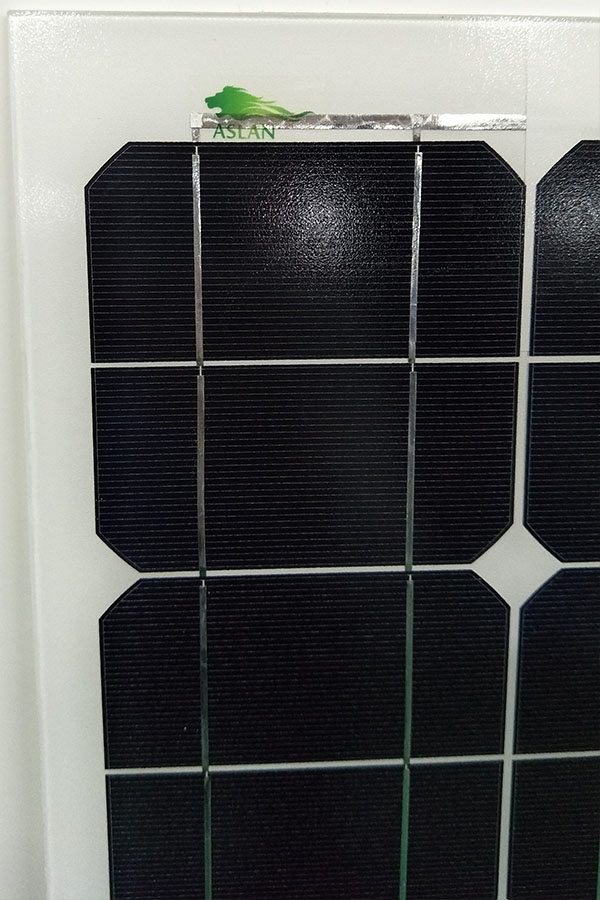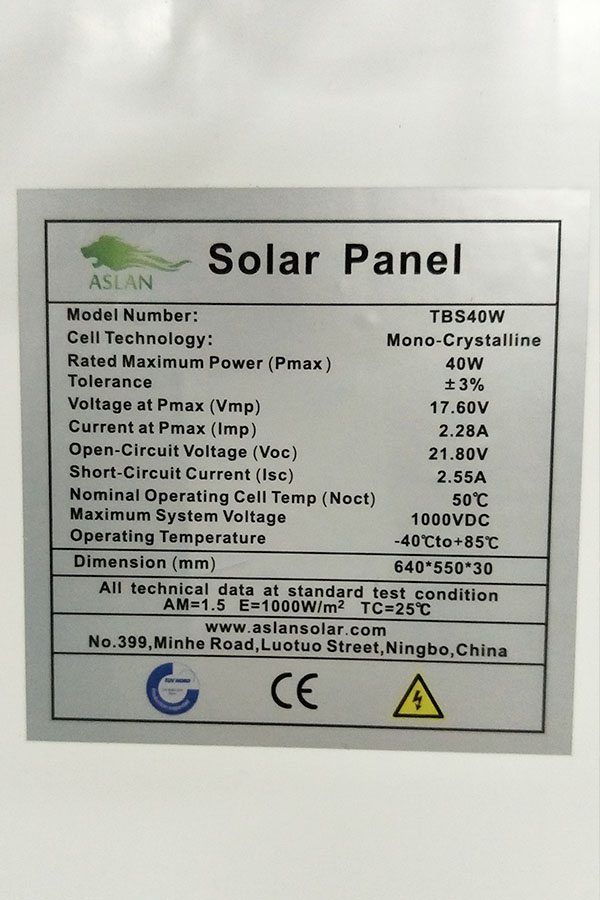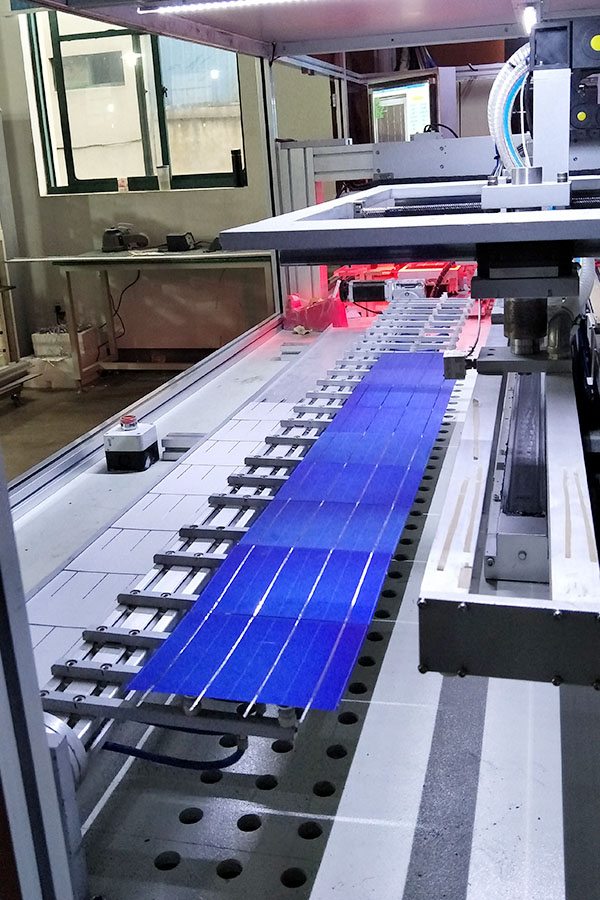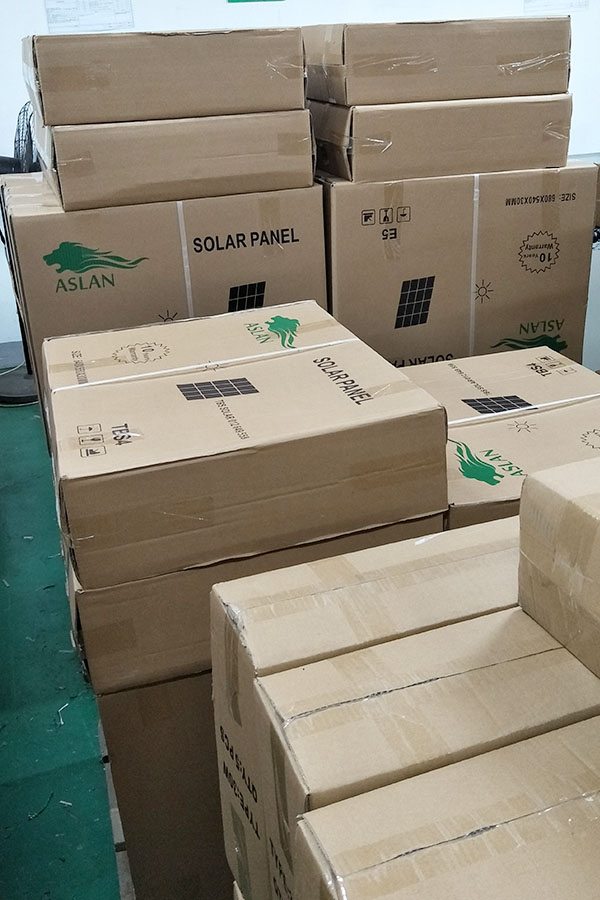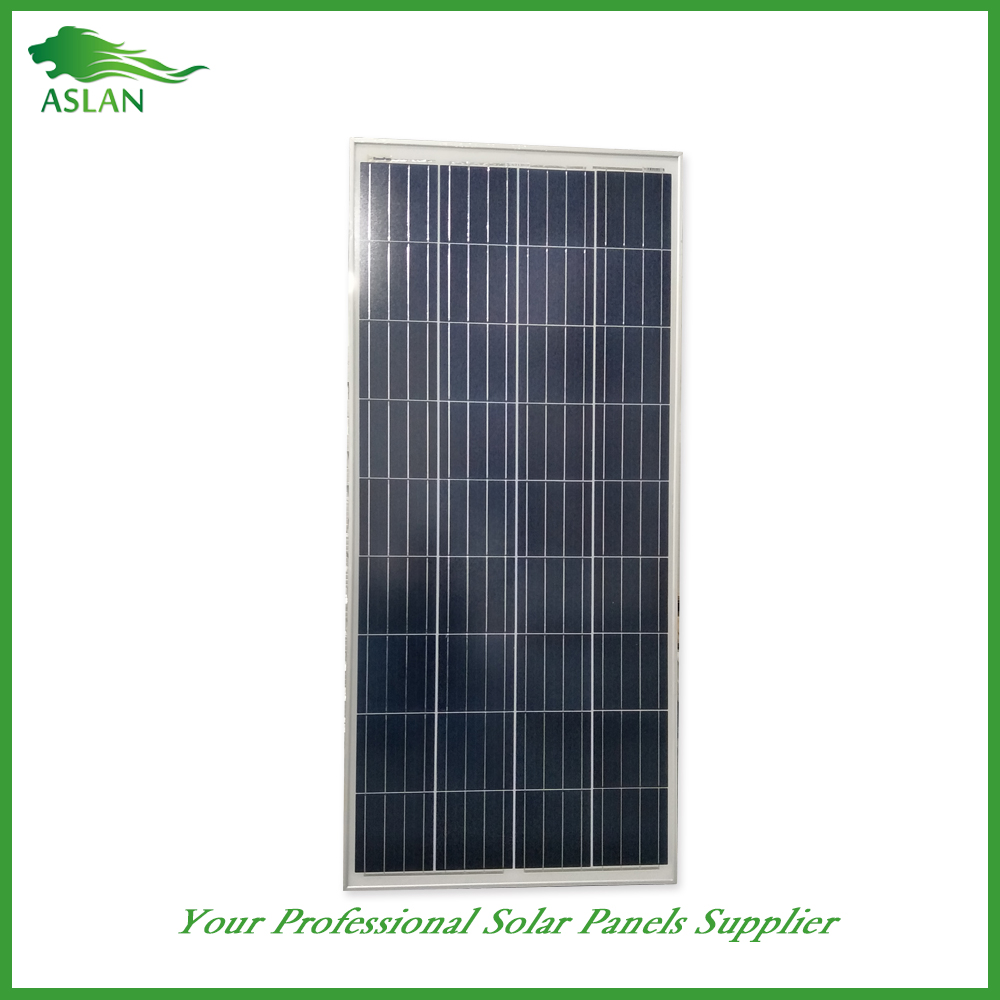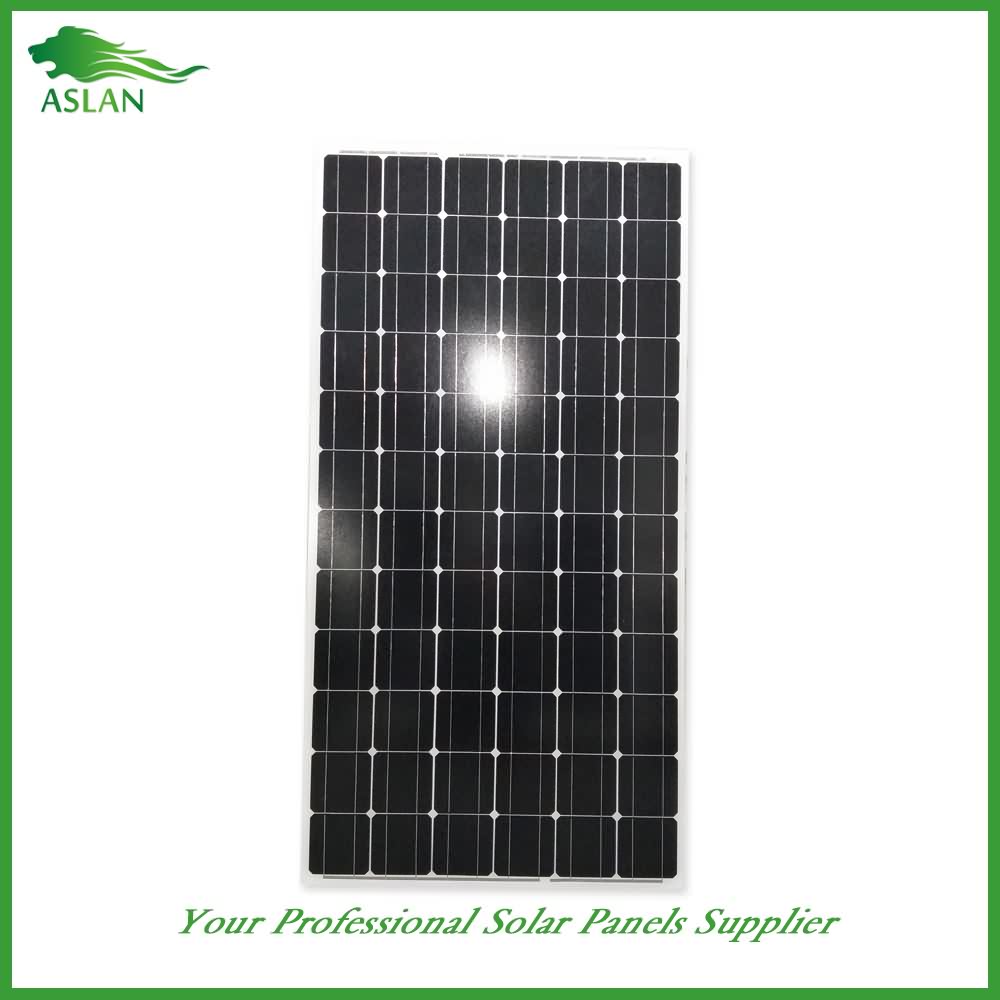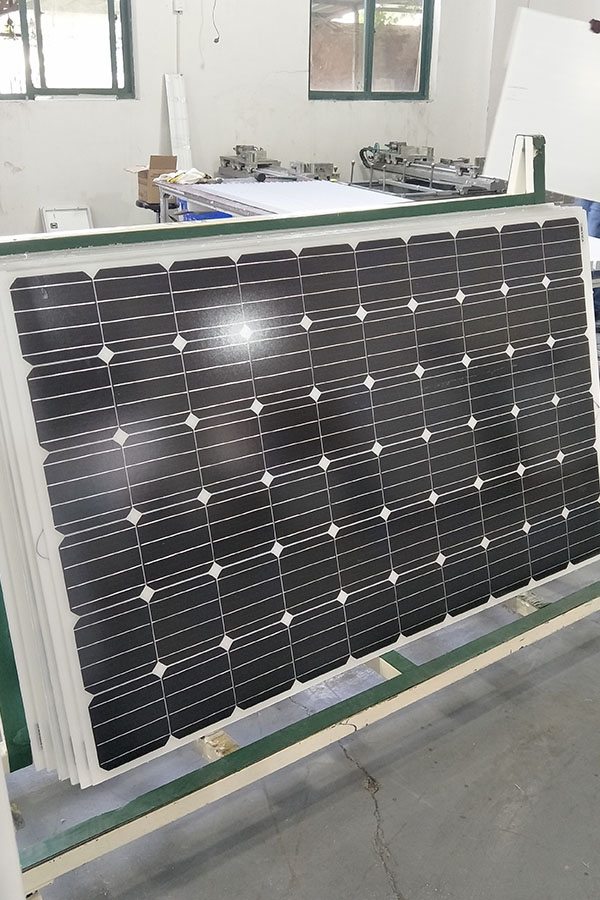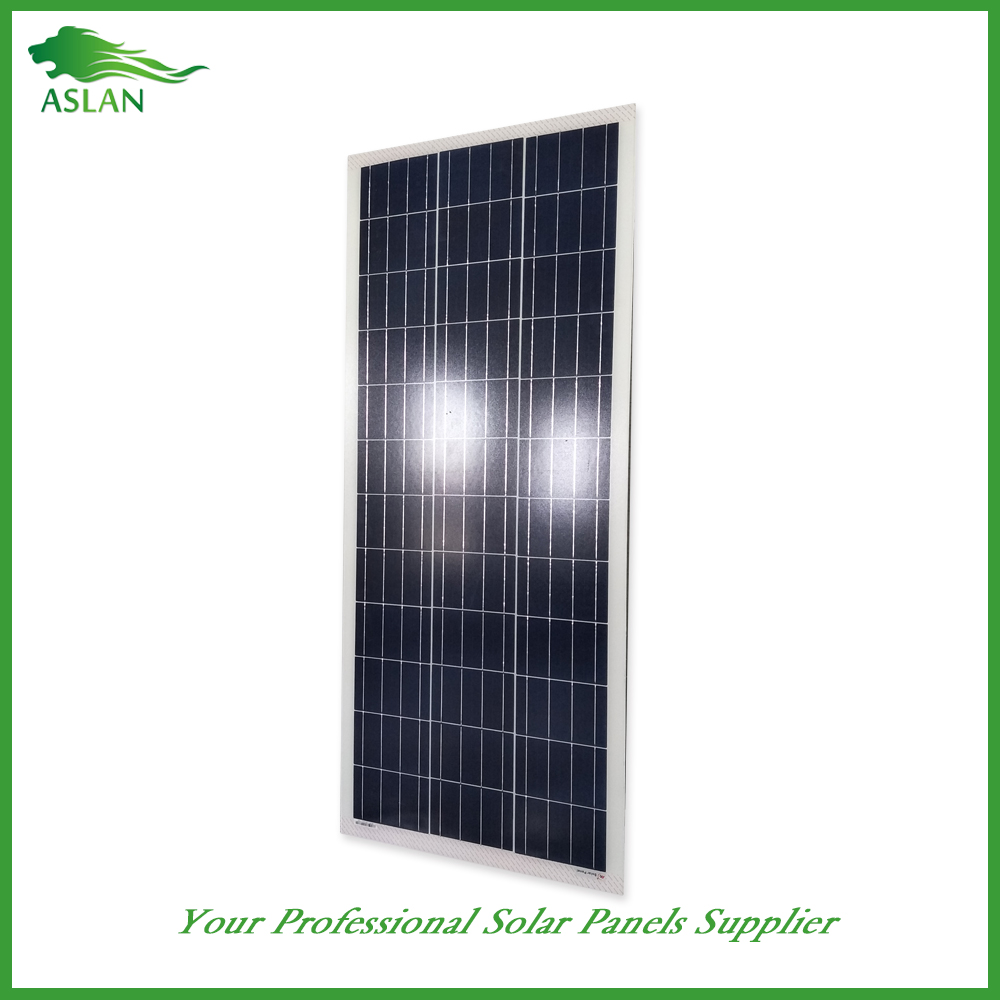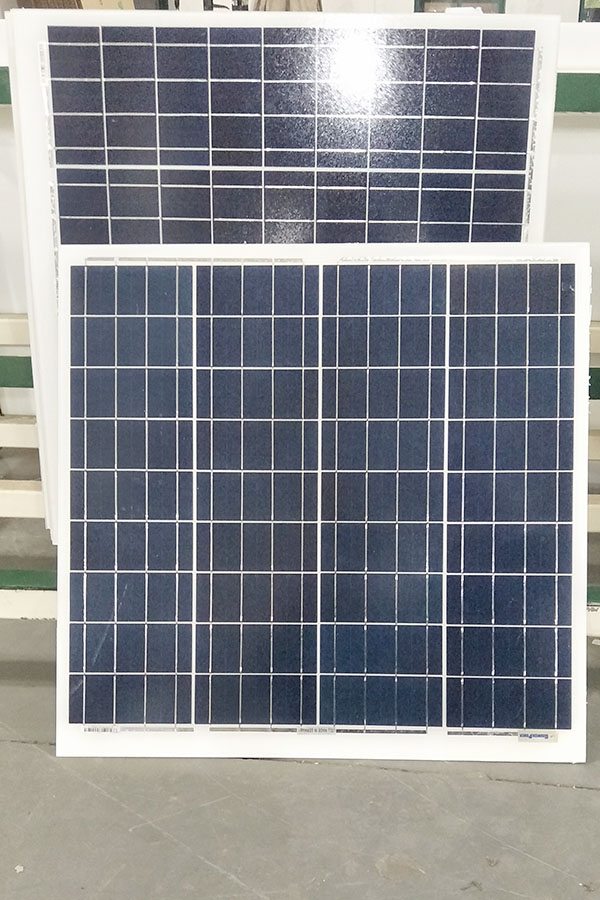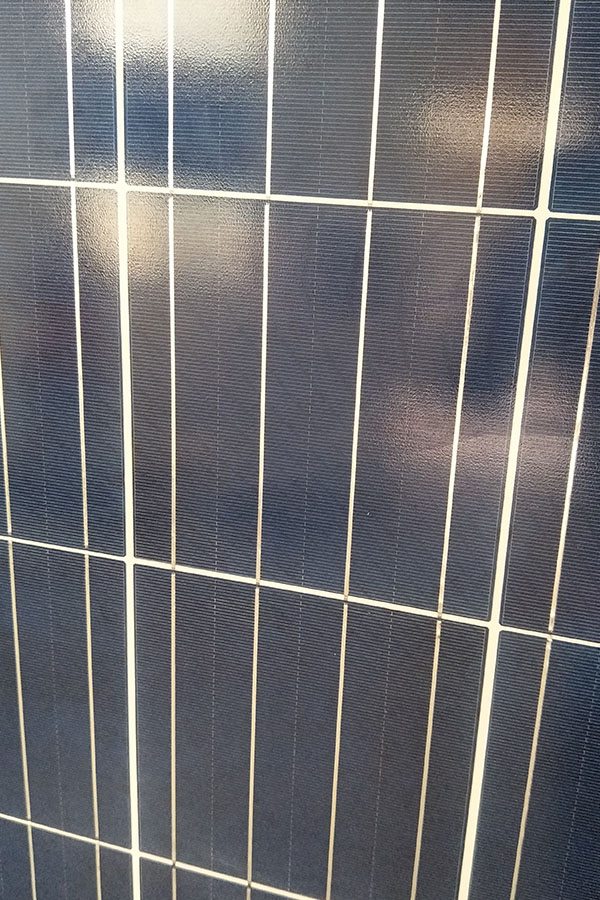60% OFF Price For Mono-Crystalline 30W Solar Panel for Juventus Factory
Short Description:
We have our own sales team, design team, technical team, QC team and package team. We have strict quality control procedures for each process. Also, all of our workers are experienced in printing field for 60% OFF Price For Mono-Crystalline 30W Solar Panel for Juventus Factory, Our professional technical team will be wholeheartedly at your service. We sincerely welcome you to visit our website and company and send us your inquiry.
Mono-Crystalline 30W Solar Panel
Technical parameter
Maximum Power(W) 30W
Optimum Power Voltage(Vmp) 17.66V
Optimum Operating Current(Imp) 1.71A
Open Circuit Voltage(Voc) 21.39V
Short Circuit Current(Isc) 1.88A
Mechanical Characteristics
Cell Type Mono-crystalline 125×41.6mm
No of Cell 36 (4x9pcs)
Dimensions 449x554x25mm
Weight 2.8Kg
Front Glass 3.5mm,High Transmission, Low Iron,Tempered Glass
Junction box IP65 Rated
Output Cable TUV 1×4.0mm2/UL12AWG,Length:900mm
Temperature and Coefficients
Operating Temperature(°C): -40°C ~ + 85°C
Maximum System Voltage: 600V(UL)/1000V(IEC) DC
Maximum Rated Current Series: 15A
Temperature Coefficients of Pmax: -0.47%
Temperature Coefficients of Voc: -0.389%
Temperature Coefficients of Isc: 0.057%
Nominal Operationg Cell Temperature (NOCT): 47+/-2°C
Materials of solar panel
1).Solar Cell——Mono-crystalline solar cell 125*41.6mm
2).Front Glass——-3.2mm, high transmission, low iron, tempered glass
3).EVA——-excellent anti-aging EVA
4).TPT——-TPT hot seal made of flame resistance
5).Frame——anodized aluminum profile
6).Junction Box——-IP65 rated, high quality, with diode protection
Superiority: high quality anodized aluminum frame, high efficiency long life, easy installation, strong wind resistance, strong hail resistance.
Features
1. High cell efficiency with quality silicon materials for long term output stability
2. Strictly quality control ensure the stability and reliability, totally 23 QC procedures
3. High transmittance low iron tempered glass with enhanced stiffness and impact resistance
4. Both Poly-crystalline and Mono-crystalline
5. Excellent performance in harsh weather
6. Outstanding electrical performance under high temperature and low irradiance
Quality assurance testing
Thermal cycling test
Thermal shock test
Thermal/Freezing and high humidity cycling test
Electrical isolation test
Hail impact test
Mechanical, wind and twist loading test
Salt mist test
Light and water-exposure test
Moist carbon dioxide/sulphur dioxide
Homemade Mosquito Trap. DIY Mosquito Trap (improved). Simple instructions on how to make a “biting fly” mosquito trap. only cost $5.00. materials needed: one small plastic container, a scrap of screen, small computer cooling fan (40x40x20 mm fan shown in video), 2 paper clips and a power source (ac/dc adapter, 9v battery, or a small 6v-9v solar panel). The mosquito “attractant” is made with yeast and brown sugar (approx. 1/3 cup of dark brown sugar mixed with 1 cup of warm water). just add the mixture to the trap and turn on fan . Essentially the trap works by spreading carbon dioxide into the surrounding air (produced when yeast is mixed with sugar) – along with the sweet sugar scent. biting flies/mosquitoes are generally attracted to both. once they enter the trap they cannot fly properly due to the air turbulence created by the fan (mosquitoes cannot fly well in anything over a 1 mph breeze). most will either drown in the liquid, get sucked up through the fan and into the netting or will land and hold on. a further improvement could be the addition of some double sided sticky tape placed on the underside of the lid and around the top inner part of the container. note that i used a very small 12v computer cooling fan (most run on 6 to 12 volts). i run the fan using only a 6 to 9 volt power source – as a lower voltage typically decreases the speed of the fan. you want the fan to run pretty slow – just enough to disperse the “attractant” (carbon dioxide/sweet sugar mix). if fan is run too fast (or pushes too much air) the mosquitoes cannot get a ‘position fix’ on the traps location. no light source was used in the trap as light tends to attract the more beneficial insects
Perovskite solar cells with submicrometre-thick CH 3 NH 3 PbI 3 or CH 3 NH 3 PbI 3–x Cl x
active layers show a power conversion efficiency as high as 15%. However, compared to the
best-performing device, the average efficiency was as low as 12%, with a large standard
